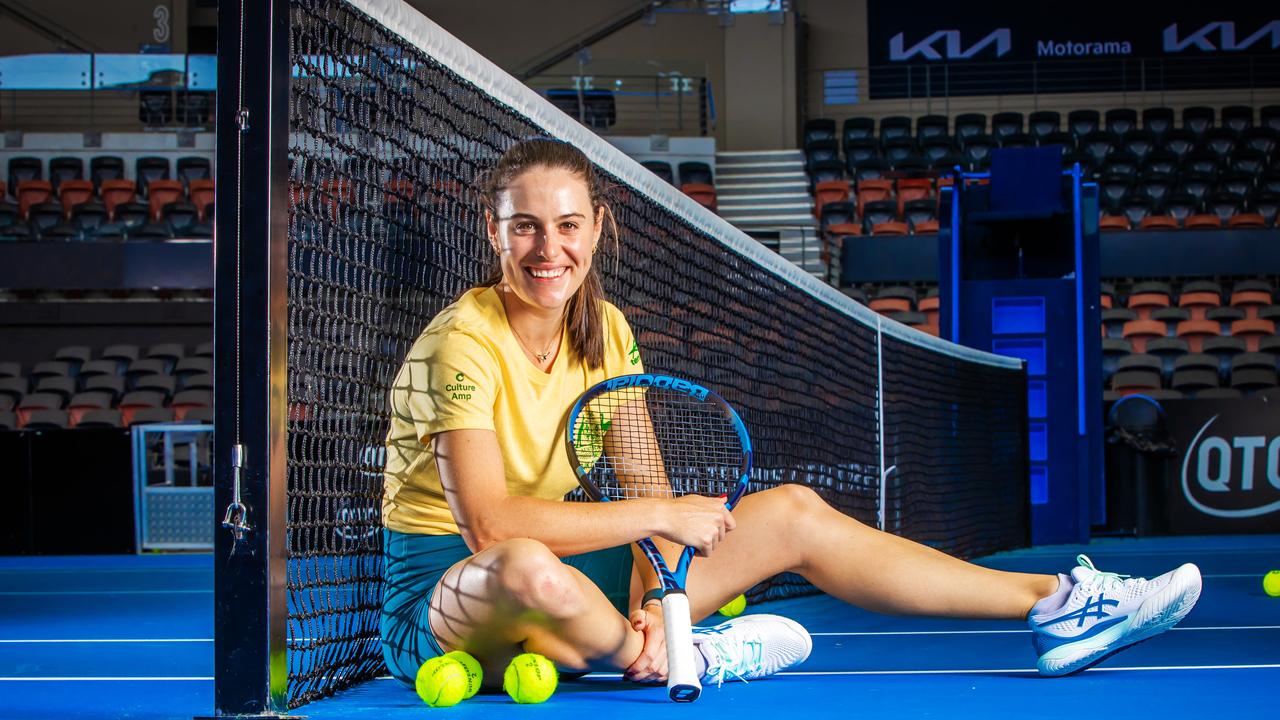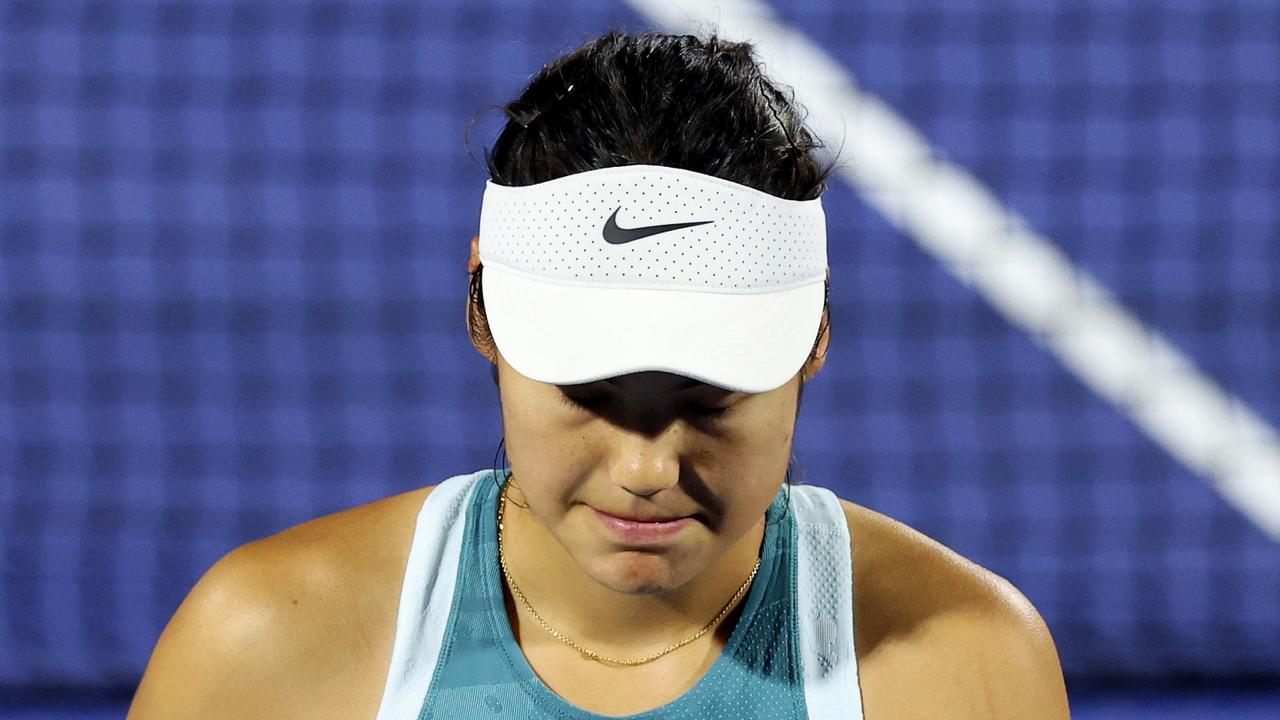
Grigor Dimitrov was annihilated by Rafael Nadal at the Monte Carlo Masters. With great trepidation, he entered the most feared place in world tennis, the post-match press conference, readying himself for the ritual kicking of a bloke when he’s down.
Media jackals tore him to shreds. They ripped into him for so long he feared it might never end. Journalists slapped their thighs and roared in laughter while poking his chest and shouting, you lost 6-1, 6-1. Damn fool. Dimitrov the dimwit. No, no, Dimitrov the dullard! Bulgarian buffoon! Your second serve was like breakfast TV in Australia. Pathetic. Unwatchable. That forehand you missed at 15-30 in the fourth game, toi idiot! Why play the French Open, you useless sod. Oh, stop your whimpering, you cross-eyed, knock-kneed, underperforming, overpaid hack. Get out from the under the table before we really put the boot in. Get out of here, you double-faulting dope, and stop wasting our time. Next.
Actually, that wasn’t how it went at all. Dimitrov’s post-match commitment went for one minutes and 32 seconds. He faced a total of two questions. About one minute and 20 seconds of the session involved his own talking. The entire press conference, after a horribly swift defeat, went like this.
Question: “You’ve obviously played Rafa many times before. How did he compare today with how he's played against you in the past?”
Dimitrov: “I don’t think there was a match to be played today. The past four, five, days I’ve been dealing with some other things. Today was just no match to play. Honestly, there’s not much to say. He is who he is on the clay. If you don’t do the necessary things against him, then obviously you don’t stand a chance. So, yeah, that’s just what it is.
“I think overall I don’t want to be too negative for this week. I went through a good week of practice. All in all, had some good matches. I mean, I’m still very positive. I’m not even thinking of this match at the moment. I didn’t play, first of all. There’s not much else to say on that. So, yeah, I think I’m going to probably take some time off now since I have to deal with something physical in the next days. Hopefully it all goes smooth and I can come back as soon as possible to a competitive mode again.
Question: “Trying to clarify what you meant. Physically, is it an illness?”
Dimitrov: “I’ve been struggling with a massive tooth problem for the past four or five days. I have like a, yeah, big infection on my tooth. It’s been hard. I haven’t been able to, like, sleep well or eat well or anything like that. I mean, it’s time to put an end to it. I was bearing it for a while this whole week. Yeah, straight to the doctor’s, unfortunately. Very, very unpleasant moment. It is what it is. At least I’m glad it happened on a home soil, at home, so I can go see my dentist and figure this problem as soon as possible. Hopefully it’s not too serious and I’ll be able to come back as soon as possible.”
Fast forward to the French Open. Dimitrov’s dental discontent had been suitably diagnosed and disentangled. In round one, he led Marcos Giron by two sets, 5-1 and 0-40 on the American’s serve. He missed a sitter of a forehand on one of those match points. He lost the next nine games and retired with a back injury before heading into his Paris press commitments.
Toi encore! L’horreur! You flimsy physical flake! Back issues be damned! Is this why you’ve never won a major? Because you’re so damn soft? How does it feel to lose the unlosable match? You blamed your tooth in Monte Carlo. Now it’s your back? Quelle blague! Any other excuses? Weather not to your liking? Don’t like the courts? Clay is for pottery? Take this kicking of a Q and A as just reward for your incompetence, and get out of our sight once more. Next.
Actually, that wasn’t how it went at all. He was treated with compassion, as 99.9 per cent of losers are on the tennis tour. Dimitrov’s press conference at Roland Garros started slowly. He sat at his table and exhaled long and loud. Journalists were yet to log onto the Zoom call. The ruthless sods were probably still putting on their steel boots to really lay into him. A French Open official told Dimitrov: “Hi Grigor, we might just have to wait a second for journalists to join us.”
It went for one minute and 20 seconds. No “kicking,” as Naomi Osaka had described the media treatment of tennis players after losses. He was asked three gentle questions, none of them in English, giving answers translated as: “I don’t know what to say. Disappointed. But it’s sport, it happens. I still don’t know exactly what the problem is, but we’ll find out in few days. I feel very bad.”
Osaka’s boycotting of press conferences masked her real issue. Depression. When she came clean on that, all made sense. Of course, no player is cartwheeling to the press conference after a loss. But Osaka was wrong to portray them as heartless beatings. They’re as polite as it gets.
Serena Williams was brought to tears by her post-loss conference at the Australian Open, but I went through that transcript on Friday, and the questioning was respectful and fair. Her tears were not regrettable. They were a true representation of her response to defeat. I bet she felt better for having shed them.
These were the questions she received, word for word.
Were you nervous during that match at all? What do you think was the difference today? Could you have imagined, you had not a single forehand winner the first set? How did you feel this morning? How was your warm-up? Did you feel like you were hitting the ball well? What do you take away from the experience of the last few weeks, in terms of what's going to be required of you personally to pursue tennis over the next six months? There was a really poignant moment when you walked off the court. You put your hand over your heart. What was going through your head in that moment? Some people wondered if you were almost saying farewell? The unforced errors through the match, considering how well up you played to get to this stage, what do you feel caused that? Was it just one of those bad days at the office?
She replied: “I don’t know. I’m done.”
And then she cried. Not because it was a cruel interrogation, but because she could no longer mask the truth.



